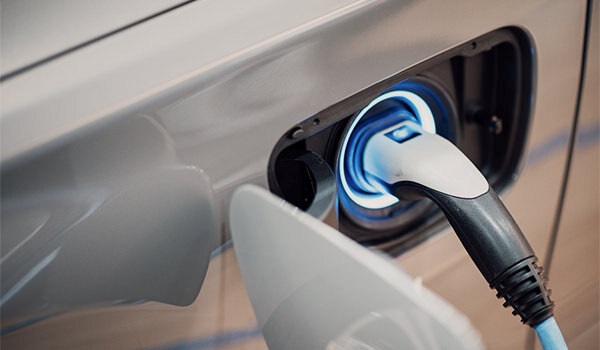
After years of talk and promises, electric cars are finally going mainstream. Many people have come to appreciate the cost-saving of electric car, as well as their environmental benefits. Business owners are now seeing the advantages of using electric cars for some, if not all, business travel.
Electric Cars vs Gas Cars
Most of us grew up with gas cars: Vehicles that run on gasoline. Over the last several decades, however, electric cars have become more commonplace and, for many people, affordable options. People opt to drive electric cars for many reasons, but usually the concern about the environment is a significant motivator. All-electric cars don't make use of fossil fuel and do not emit fumes that contribute to air pollution.
What kind of mileage can you get with an electric car?
It depends on your vehicle. According to the Institution of Transportation Studies at University of California Davis, older vehicles (those built through 2016) could run for about a hundred miles on a full charge, though newer models can run for as much as 250 miles. High-end electric cars (such as Teslas) can travel for up to 350 miles between charges.
The numbers above are for all-electric cars. The Institution for Transportation Studies states that hybrid cars will run for a few miles using only electric power before starting to use gasoline. At that point, the car may be able to run for up to 300 miles.
How long do electric cars run?
If you are considering an electric car fleet, you'll want to understand the expected lifespan of your vehicles. The news, it turns out, is good:
Consumer Reports states that the average electric vehicle Berry can be expected to last for 200,000 miles.
Because electric cars do not have as many components as gas powered vehicles, there are fewer parts that malfunction.
As of 2022, all electric car batteries are warrantied to last for at least 100,000 miles of driving. If you plan to purchase an electric car, review the warranty carefully so that you understand the mileage as well as the level of support you'll receive if you have to replace the berry.
Taking care of your fleet, and training your employees to do the same, can also help ensure that your car remains in service, allowing you to get the maximum return on your investment.
Do Electric Cars Save Money?
Electric cars have the potential to save you and your business a significant amount of money over time. While it is true that electric cars cost more than conventional vehicles, there can be significant cost savings. In fact, Consumer Report notes that it may be possible to recoup the money you spend over the cost of a comparable gas-powered vehicle through savings on fuel costs.
Another thing to consider is that the relative simplicity of electric cars compared to standard vehicles can result in lower maintenance costs over time. This offers the benefits of fewer maintenance and repair bills and reduces on-the-road problems that may require expensive towing services.
Also, instead of being in the shop, your cars will be available to your team. This offers the benefits of flexible scheduling and reducing situations in which you have to rent a vehicle because one or more of your cars or Vans are out of commission.
Tax Benefits of Driving an Electric car
There can be significant tax benefits for electric car drivers, as well as other non-tax discounts in perks offered by public utility companies, state governments, and local governments. Here are a few to take into consideration:
Federal tax credit: You can receive a federal tax credit of up to $7,500 dollars for purchasing a new electric or hybrid vehicle. Check here to see what your credit could be.
Some states, such as California, offer rebates and tax benefits.
In some areas, such as Chicago, some public parking spaces are available for electric vehicles.
Some electricity providers offer preferential rates for the purpose of charging electric vehicles.
These benefits are increasing in many areas and are also subject to change. To find out what is available in your area, as well as the area where your company does business, visit PlugInAmerica.org.
As is always true with tax matters, it is critical that you seek the that of an attorney or certified public accountant before making purchasing decisions based on potential tax benefits. The cost of an audit or penalties can easily offset the saving of an electric vehicle.
Branding Benefits
Consumers are increasingly concerned about social compliance issues. “Social compliance” describes whether a business operates in a line with social and ethical standards such as environmental sustainability, diversity, workers rights, and supply chain transparency. By opting to use electric vehicles, you are positioning your company as one that is concerned about the environment and is willing to actually commit to a more sustainable mode of transportation.
Electric Car Rental
If you’re like most business owners, maintaining a vehicle fleet is not an option. Instead, you either expect employees to use their car while offering mileage reimbursement, or to rent cars while they are on the road. Many major car rental companies now offer the option of renting electric or hybrid vehicles. As a part of your company travel policy, you could incentivize or encourage electric car rentals by designing car rental companies that offer electric vehicles as preferred providers.
Electric Cars and Business Travel
While there are many benefits to using electric cars for business travel, it is also important to be aware of some potential challenges. The most significant is ensuring that your team will have access to charging stations while on the road. There are still long stretches of highway in the United States that offer amenities and services, including electric car charging facilities.
Another concern is time: Charging an electric car takes longer than filling up a tank of gas. The U.S. Department of Energy states that a full charge can take 3 – 12 hours and a “fast” charge to 80% of battery capacity can take 30 minutes. While this isn't always a significant problem, it can be if your team members are on a deadline or need to get ahead of rush hour traffic.
One way of migrating these concerns is careful travel planning that takes into consideration routes and schedules. It's also true that many businesses other than service stations offer electric car charge stations, including hotels. Researching hotels ahead of time can help business travelers choose accommodations that provide this service.
For many businesses, it may be wiser to use conventional vehicles for some trips, while electric vehicles will make sense for others. As greater adoption of electric cars occurs, and as technology improves, access to fast-charging stations is likely to accelerate.
Business travel can offer great returns for your company, but only if it is managed correctly. CLC Lodging offers the tools and services business owners need to develop travel policies, negotiate discount rates, and to help employees stay safe while on the road. Sign up today to see all that we can do for you and your business.
Recent Posts
-
.jpg)
U.S. Trucking Transportation Trade Shows and Conferences
Jan 23, 2025 | -

Demolish the Biggest Frustrations in Construction Travel
Nov 19, 2024 | -

Thanksgiving 2024: What Restaurants are Open for the Holiday?
Nov 19, 2024 |